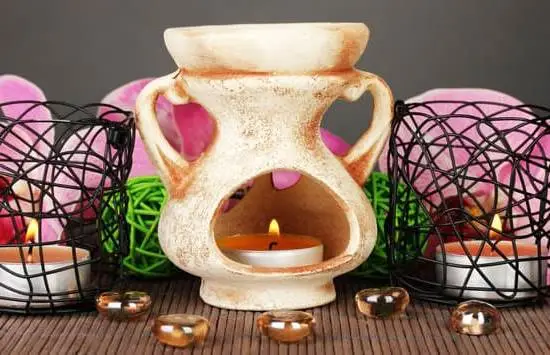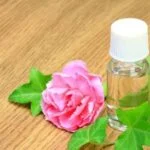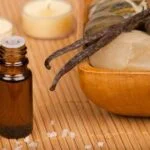Aromatherapy, a practice that utilizes the power of scent for therapeutic purposes, has gained significant popularity in recent years. The use of aromatherapy oils, extracted from various plants and flowers, is believed to promote physical and mental well-being. However, the question remains: do aromatherapy oils actually work? In this article, we will delve into the concept of aromatherapy and its growing popularity, while exploring whether there is scientific evidence to support its effectiveness.
Aromatherapy is a holistic practice that involves using essential oils to enhance relaxation and relieve stress. These oils are typically derived from plants through processes such as distillation or cold-press extraction. They are then used in various ways, such as through inhalation, massage, or added to bathwater. The scents emitted by these oils can have a profound impact on our emotions and overall sense of well-being.
In recent years, aromatherapy has garnered attention as individuals seek natural alternatives for promoting health and wellness. With claims of benefits ranging from reducing anxiety and improving sleep quality to boosting concentration and relieving headaches, it’s no wonder that people are turning to aromatherapy oils as a potential solution. However, amidst the hype surrounding this practice, it is important to examine whether there is scientific evidence to support these claims or if they remain rooted in anecdotal experiences.
In the following sections of this article, we will delve deeper into understanding different types of aromatherapy oils and their uses. We will also explore the historical background of aromatherapy and its traditional uses throughout civilizations.
Additionally, we will examine existing research on the effectiveness of these oils and discuss potential benefits as well as safety concerns associated with their usage. Let’s explore the world of aromatherapy together and determine whether these oils truly have a positive impact on our well-being.
Understanding Aromatherapy Oils
Aromatherapy oils are widely used for their therapeutic properties and pleasant scents. These oils are derived from plant materials such as flowers, leaves, bark, and roots, through various extraction methods. Understanding the different types of aromatherapy oils and their specific uses can help individuals make informed choices when incorporating them into their wellness routines.
Types of Aromatherapy Oils
There is a vast array of aromatherapy oils available, each possessing its own unique scent and potential benefits. Some popular types include:
- Lavender Oil: Known for its calming properties, lavender oil is often used to promote relaxation and reduce anxiety. It may also help alleviate headaches and induce sleep.
- Peppermint Oil: Recognized for its invigorating aroma, peppermint oil is commonly used to relieve headaches and improve mental clarity. It may also provide relief from digestive issues such as bloating and indigestion.
- Eucalyptus Oil: With its refreshing scent, eucalyptus oil is frequently utilized to ease respiratory conditions like congestion due to colds or allergies. It can also be used in topical applications for soothing muscle aches.
- Tea Tree Oil: Tea tree oil possesses antibacterial and antifungal properties, making it a popular choice for treating skin conditions such as acne or fungal infections.
Uses of Aromatherapy Oils
Aromatherapy oils can be utilized in several ways depending on the desired effect:
- Inhalation: One common method is inhalation, where a few drops of essential oil are added to a diffuser or a bowl of hot water. Inhaling the aroma allows the scent molecules to be absorbed into the bloodstream via the nasal passages, providing potential benefits ranging from relaxation to mental clarity.
- Topical Application: Aromatherapy oils can also be applied topically, either directly to the skin or diluted in a carrier oil. When used in massages or skin care routines, they may help promote relaxation, reduce inflammation, and improve skin health.
- Bathing: Adding a few drops of aromatherapy oil to a bath can create a soothing and rejuvenating experience. The warm water helps to release the aroma, which can have an uplifting effect on mood and provide relief from muscle tension.
It is important to note that while aromatherapy oils are generally considered safe for use, some individuals may be more sensitive or have allergic reactions. It is advisable to perform a patch test before using any new oil and consult with a healthcare professional if you have any underlying health conditions or concerns.
By understanding the different types of aromatherapy oils and their uses, individuals can choose the oils that best align with their needs and preferences. Whether through inhalation, topical application, or bathing, incorporating aromatherapy oils into daily routines can offer numerous potential benefits for overall well-being.
Historical Background
Aromatherapy has been used for centuries, with its origins dating back to ancient civilizations. Throughout history, various cultures have recognized the power of aromatherapy oils and incorporated them into their traditional practices. Understanding the historical background of aromatherapy can provide insights into the potential benefits and uses of these oils.
Ancient Civilizations and Aromatherapy
The use of aromatic substances can be traced back to ancient civilizations such as Egypt, Greece, China, and India. In Egypt, for example, essential oils were highly valued and used for medicinal, cosmetic, and ritual purposes. The Egyptians utilized fragrant materials like myrrh and frankincense in religious ceremonies and embalming processes.
Similarly, aromatherapy was an integral part of the healing traditions in Greece. The renowned physician Hippocrates believed in the therapeutic properties of fragrance and often prescribed aromatics to his patients. The Greeks also incorporated aromatic herbs into their bathing rituals for relaxation and rejuvenation.
In China, aromatic materials like cinnamon and clove were used in herbal medicine practices known as “fragrance therapy.” These fragrant substances were believed to balance the energy flow within the body and treat various ailments.
Traditional Uses of Aromatherapy Oils
Throughout history, different cultures have recognized the diverse uses of aromatherapy oils. Traditional practices involved inhaling or applying diluted oils directly onto the skin to promote physical or emotional well-being.
In Ayurveda, a traditional system of medicine from India, aromatherapy plays a central role. Essential oils are combined with massage techniques to enhance relaxation, balance energies (doshas), and improve overall health.
Native American cultures also have a long-standing tradition of using aromatic plants for spiritual purposes. They burn sage or cedar bundles during ceremonial events to purify spaces or promote emotional clarity.
It is clear that aromatherapy has deep roots in human history, spanning across cultures and continents. This historical background lends credibility to the traditional uses of aromatherapy oils and their potential effectiveness in promoting wellness.
Scientific Evidence
Aromatherapy has gained significant popularity in recent years, but the question still remains: do aromatherapy oils actually work? To answer this question, it is important to look at the scientific evidence surrounding the effectiveness of aromatherapy oils.
Scientific research on the efficacy of aromatherapy oils has been conducted to determine their potential benefits. Numerous studies and experiments have been undertaken to explore the impact of aromatherapy oils on various conditions and symptoms.
For example, a study published in the Journal of Alternative and Complementary Medicine found that inhaling lavender essential oil can help reduce anxiety levels in patients undergoing medical procedures. Another study in the Journal of Clinical Oncology showed that inhaling a blend of essential oils can alleviate nausea and improve well-being in cancer patients receiving chemotherapy.
In addition to these studies, there is also research that debunks the effectiveness of aromatherapy oils. Some studies have found inconclusive or contradictory results, suggesting that other factors may be at play when it comes to experiencing any benefits from aromatherapy oils. It’s important to note that individual responses may vary, and what works for one person may not work for another.
Despite varying scientific evidence, many individuals report positive experiences with aromatherapy oils. Personal anecdotes and testimonials reveal how different individuals have found relief from symptoms such as headaches, insomnia, stress, or even respiratory issues through the use of specific essential oils. However, it is crucial to acknowledge the subjective nature of personal experiences and recognize how they can influence perceptions of effectiveness.
Benefits and Potential Uses of Aromatherapy Oils
Aromatherapy oils have been used for centuries for their potential benefits on physical and mental well-being. While the scientific evidence on the efficacy of these oils is still developing, many individuals claim to experience positive effects from their use.
One of the potential benefits of aromatherapy oils is their ability to promote relaxation and reduce stress. Certain oils, such as lavender and chamomile, are known for their calming properties and can be used to create a peaceful environment or as part of a relaxation routine. Inhalation or topical application of these oils may help soothe the mind, ease tension, and improve sleep quality.
In addition to promoting relaxation, aromatherapy oils are believed to have mood-enhancing effects. Citrus oils like orange and lemon are often used for their uplifting properties, which can help improve mood and increase feelings of happiness. These oils are commonly used in diffusers or added to bath water for an invigorating experience.
Aromatherapy oils also have potential uses in managing certain physical ailments or symptoms. For example, peppermint oil is often used topically to alleviate headaches or relieve congestion due to its cooling properties. Eucalyptus oil is another commonly used oil that may help clear airways when inhaled, making it useful for those with respiratory issues.
While these potential benefits sound promising, it’s important to note that individual experiences with aromatherapy oils can vary greatly. Some individuals may find them highly effective in achieving desired outcomes while others may not notice any difference. It’s crucial that individuals approach aromatherapy with an open mind and recognize the subjective nature of personal experiences.
Safety Concerns
Aromatherapy oils can provide numerous benefits for physical and mental well-being, but it is essential to use them safely and responsibly. While aromatherapy oils are generally considered safe when used correctly, there are some safety concerns and precautions that should be followed to ensure a positive experience. This section will address the importance of using aromatherapy oils properly and outline specific safety measures to keep in mind.
First and foremost, it is crucial to remember that aromatherapy oils are highly concentrated substances and should never be used undiluted on the skin or ingested without the guidance of a trained professional. Essential oils must be diluted in carrier oils such as coconut oil or almond oil before applying topically to avoid skin irritations or other adverse reactions. The recommended ratio for dilution is typically 1-3% essential oil to carrier oil.
Additionally, individuals with certain medical conditions or sensitivities may need to exercise extra caution when using aromatherapy oils. Pregnant women should consult with their healthcare provider before using any essential oils, as some oils can be potentially harmful during pregnancy. People with asthma, allergies, or respiratory conditions should also approach aromatherapy with care, as some scents can trigger adverse reactions.
To ensure the safe usage of aromatherapy oils, here are a few key precautions:
- Always patch test: Before applying an essential oil blend onto a larger area of your skin, perform a patch test by applying a small amount to your inner forearm. Wait 24 hours to check for any redness, irritation, or allergic reactions.
- Proper storage: Store your essential oils in dark glass bottles away from direct sunlight and in a cool place. This helps maintain their potency and prevents them from deteriorating quickly.
- Dilution ratios: Follow recommended dilution ratios and do not exceed the prescribed amount of essential oil per ounce of carrier oil.
- Keep out of reach of children and pets: Essential oils can be toxic if ingested, so it’s essential to keep them stored safely out of reach.
By following these safety precautions and practicing responsible usage, individuals can minimize the risks associated with aromatherapy oils and enjoy their therapeutic benefits. It is always recommended to consult with a qualified aromatherapist or healthcare professional for personalized guidance and advice regarding the safe use of essential oils.
Personal Experiences
One of the factors that contribute to the popularity of aromatherapy oils is the personal experiences and testimonials shared by individuals who have used these oils. While personal anecdotes should not be considered as scientific evidence, they can provide valuable insights into the potential benefits and effects of aromatherapy oils.
Many people have reported positive experiences with using aromatherapy oils for various purposes. For instance, lavender oil is often praised for its calming properties and its ability to promote better sleep. Individuals have shared how using lavender oil before bedtime helps them relax and unwind, leading to a more restful night’s sleep.
Similarly, peppermint oil is often associated with increased energy and focus. Some individuals have reported feeling more alert and mentally sharp after inhaling or applying peppermint oil. These personal testimonials highlight the subjective nature of aromatherapy experiences and how different oils can have varying effects on individuals.
It is important to note that while personal experiences can be insightful, they should not be relied upon as the sole basis for determining the effectiveness of aromatherapy oils. The placebo effect plays a significant role in perception, meaning that individuals may experience benefits simply due to their belief in the efficacy of the oils.
To provide readers with a more balanced perspective on aromatherapy oils, it is essential to consider both scientific evidence and personal anecdotes. By combining objective research findings with individual experiences, readers can make informed decisions about whether aromatherapy oils may work for them.
| Type of Oil | Benefit/Effect |
|---|---|
| Lavender Oil | Calming properties; promotes better sleep |
| Peppermint Oil | Increased energy and focus; promotes mental alertness |
| Lemon Oil | Uplifting and refreshing; improves mood |
The Placebo Effect
One important factor to consider when discussing the effectiveness of aromatherapy oils is the placebo effect. The placebo effect refers to the phenomenon where a person experiences a perceived improvement in symptoms or well-being simply because they believe a treatment or intervention is effective, even if it has no active ingredients or therapeutic properties. This is particularly relevant when it comes to subjective experiences such as pain relief or stress reduction, which are common reasons for using aromatherapy oils.
Numerous studies have demonstrated the power of the placebo effect in influencing outcomes and perceptions of efficacy in various medical treatments, including the use of alternative therapies like aromatherapy. In fact, research suggests that the placebo effect can account for a significant portion of reported improvements in symptom relief, particularly in subjective conditions such as anxiety, depression, and pain management.
For example, a study published in Pain Management Nursing found that patients who received inhalation of lavender essential oil experienced decreased pain intensity compared to those who received a control treatment. However, further analysis showed that this improvement was likely influenced by the patients’ belief and expectation that their pain would be relieved by the lavender oil.
Another study published in Complementary Therapies in Medicine explored the effects of rosemary oil on cognitive performance. The results showed that participants who believed they had received rosemary oil performed better on cognitive tasks compared to those who believed they had received a control substance, even though all participants actually received an odorless carrier oil.
These findings highlight how strongly our beliefs and expectations can shape our experience with aromatherapy oils. While some individuals may genuinely experience therapeutic benefits from using these oils, others may attribute their perceived improvement solely to believing in its efficacy. Therefore, it’s important for individuals considering using aromatherapy oils to approach them with a balanced perspective and recognize the potential influence of the placebo effect on their perception of effectiveness.
Conclusion
One must keep in mind that personal experiences and the placebo effect can greatly influence perceptions of effectiveness when it comes to aromatherapy oils. People may have different reactions and outcomes when using these oils, so individual experiences should be taken into consideration while forming an opinion. This subjectivity makes it difficult to definitively state whether aromatherapy oils work universally for everyone.
In making a decision about whether or not to try aromatherapy oils, it may be beneficial to consult with a trusted healthcare professional who has knowledge in this area. They can provide guidance on specific essential oils that may be effective for certain conditions or symptoms. Additionally, reputable brands or sources should be sought out to ensure the quality and purity of the oils being used.
Ultimately, the effectiveness of aromatherapy oils may vary from person to person due to factors such as belief systems, individual physiology, and psychological factors. As with any alternative therapy or treatment, it is important to approach aromatherapy oils with an open mind and a critical eye towards scientific evidence and personal safety precautions. It may be worth giving them a try under proper guidance and forming one’s own opinion based on personal experiences.
Call to Action
Conclusion:
In conclusion, the effectiveness of aromatherapy oils is a topic that continues to be debated. While scientific evidence may not conclusively prove their efficacy, many individuals have reported positive experiences and benefits from using these oils. It is important to approach aromatherapy with a balanced perspective, considering both personal experiences and scientific research.
When using aromatherapy oils, it is crucial to follow proper usage guidelines and precautions to ensure safety. Diluting the oils appropriately and being aware of any potential side effects or contraindications is essential. Additionally, choosing reputable brands or sources for purchasing aromatherapy oils can help ensure the quality and purity of the products.
Ultimately, whether aromatherapy oils work for you may come down to individual differences and the placebo effect. Belief and expectation can play a significant role in our perception of effectiveness. Therefore, it is recommended that readers try aromatherapy for themselves, taking into account their own experiences, as well as the available scientific evidence.
If you are interested in exploring aromatherapy further, there are numerous reputable brands and sources where you can find high-quality oils. It may be worth giving it a try and seeing how your body responds to different scents and applications.
Remember, everyone’s experience with aromatherapy can be unique, so take the time to experiment and find what works best for you. Whether you use them for stress relief, relaxation, or other specific conditions, aromatherapy oils have the potential to enhance your overall well-being.
Frequently Asked Questions
What aromatherapy oils are good for?
Aromatherapy oils are used for a variety of purposes, primarily for their therapeutic benefits and pleasant scents. These oils, derived from various plants and flowers, are known to have healing properties that can promote relaxation, relieve stress, uplift mood, and enhance overall well-being.
Different aromatherapy oils have different effects on the body and mind; for example, lavender oil is commonly used to induce relaxation and improve sleep quality, while peppermint oil is often used to alleviate headaches and boost concentration.
Does diffusing essential oils do anything?
Diffusing essential oils is an effective way to benefit from their properties. When diffused into the air using a diffuser or other methods like steam inhalation or sprays, essential oils release tiny particles that can be inhaled by individuals in the vicinity.
Inhaling these particles allows the volatile compounds in the oils to enter the bloodstream through the respiratory system. This method of aromatherapy delivery can have various effects depending on the specific oil being diffused – it can promote relaxation, increase energy levels, boost cognitive function, improve focus and concentration, provide respiratory relief, or even repel insects.
Does aromatherapy actually work for anxiety?
Aromatherapy has been shown to be beneficial in managing symptoms of anxiety for some individuals. The use of certain essential oils can help create a calming environment that promotes relaxation and reduces stress levels. Lavender oil is widely recognized for its anxiety-relieving properties; studies have shown that inhaling lavender oil vapor can significantly reduce anxiety levels and induce a sense of calmness.
Additionally, other essential oils such as chamomile, bergamot, ylang-ylang, and frankincense also have calming effects that may contribute to alleviating anxiety symptoms when used in aromatherapy practices. However, it’s important to note that individual responses may vary due to personal preferences and sensitivities – what works for one person might not work for another when it comes to anxiety management through aromatherapy.

Are you looking for a natural way to improve your health and wellbeing?
If so, aromatherapy may be the answer for you.





